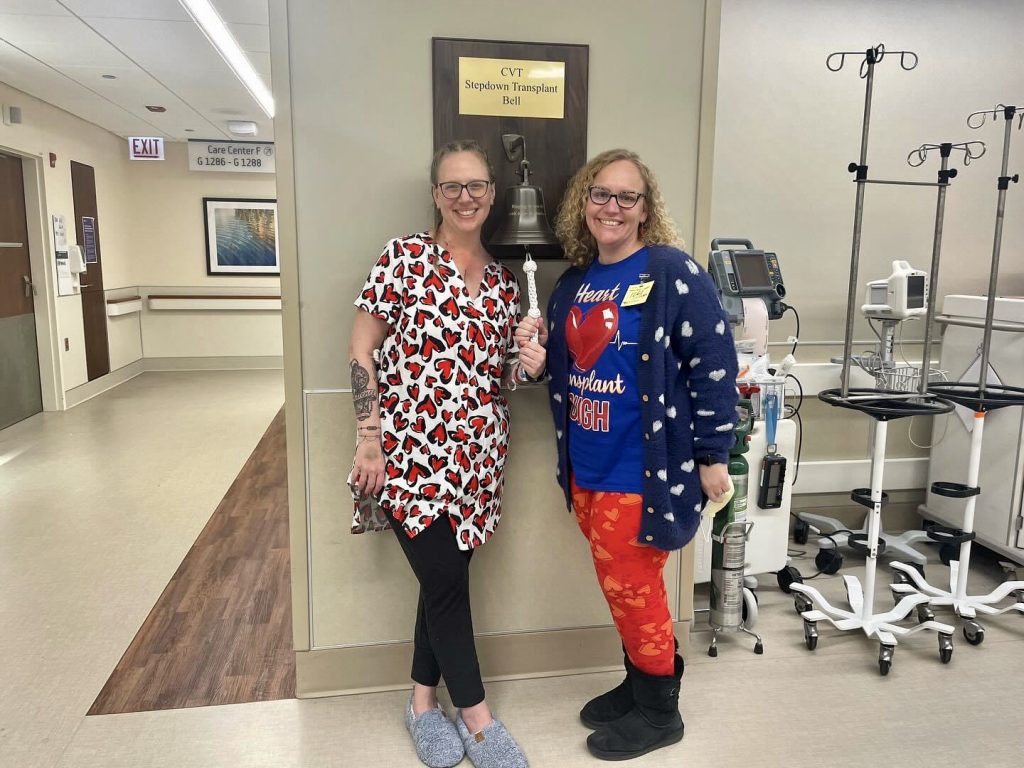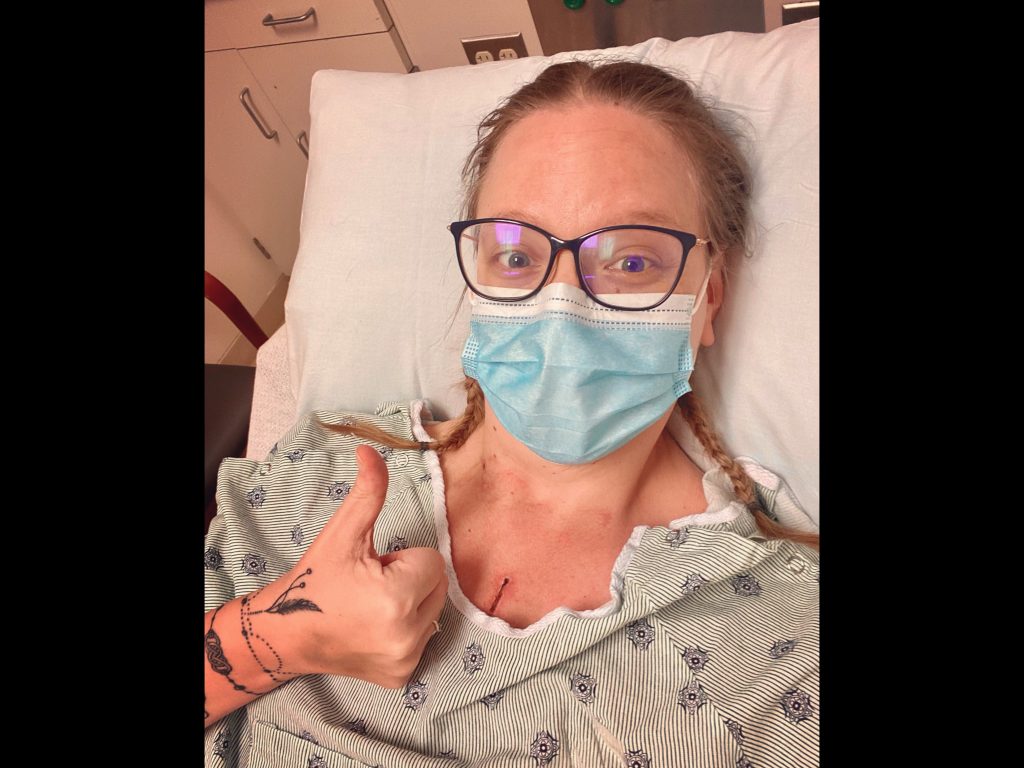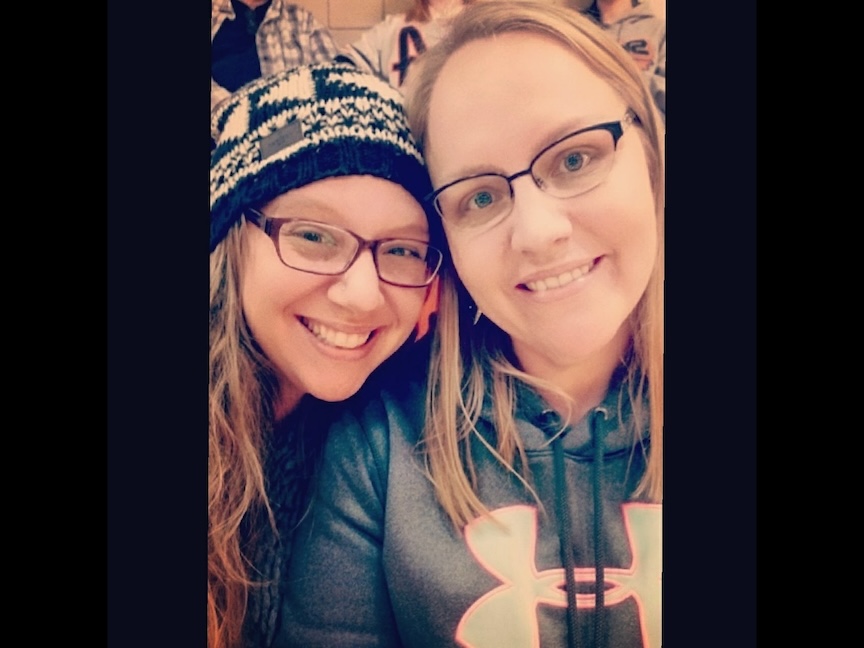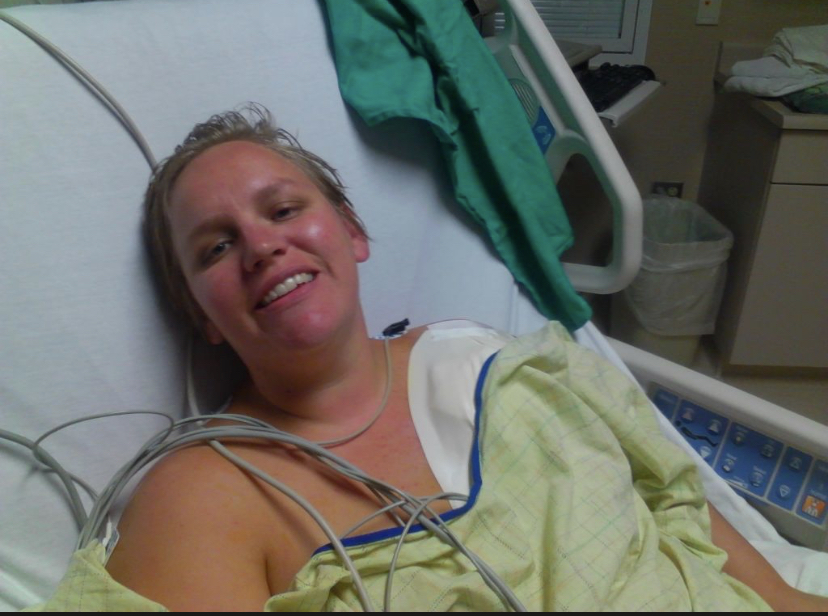Survivor Sisters: An Unbreakable Bond
- Chicago sisters Meredith Everhart and Abbey Cannon, who both received life-saving heart transplants at Northwestern Medicine seven years apart at the exact same age of 38, tell SurvivorNet they are exceptionally grateful during this holiday together after a second chance at life.
- Abbey, a mom of two, was the first to be diagnosed with hypertrophic cardiomyopathy (HCM), a type of heart disease that makes the heart muscle thicken, which makes it harder for the heart to pump blood. It’s a genetic condition that can lead to heart failure.
- Following Abbey’s surgery, Meredith found out she had the same condition. After years of declining heart health, she was able to get in for a transplant last January after contracting COVID in 2022 put her into heart failure.
- From a heart issue to cancer or any other challenging disease, multiple opinions matter. What initially led Abbey to Northwestern was seeking a second opinion. She had initially been told she was not a candidate for surgery despite her failing heart, the worst case her doctors had seen. After being told her wait could be 10-15 years, by going to a new team, she was able to get in for a new heart in just a few months. And will ring in the new year with her sister, now both with new hearts.
Northwestern Medicine social worker Meredith Everhart, 39, and her older sibling, Abbey Cannon, 46, both underwent the same surgery for the same heart condition, both at Northwestern Medicine in Chicago. Meredith, after a year-long wait, had her procedure in January 2024.
Read More
“Mentally, having a new heart has been a struggle. Your mind can play a lot of tricks on you and you go through a lot of different types of emotions, but at the end of the day, no matter what emotions I’m feeling, I’m forever grateful to have my donor.”

As for Abbey, “This holiday season is extra special to me because my sister is not only here, but she’s thriving!” she adds to SurvivorNet.
“We are already close, but both of us having the experience of getting a heart transplant now makes that bond even stronger.”
Abbey’s Diagnosis for Hypertrophic Cardiomyopathy (HCM)
The mom of two was the first to seek medical care at Northwestern Medicine Bluhm Cardiovascular Institute nearly eight years ago.
She was looking for a second opinion on how to treat her hypertrophic cardiomyopathy (HCM), a type of heart disease that makes the heart muscle thicken, which makes it harder for the heart to pump blood. It’s a genetic condition that can lead to heart failure.

In Nashville, where her family lived before moving back to her hometown of Chicago, she was told she needed a heart transplant, but that she wasn’t a candidate for surgery.
Doctors told her they had never seen a case as bad as hers, and shockingly, still prepped her for the fact that the wait could be 10 to 15 years.
RELATED: How Lifestyle Changes Can Help With Managing Heart Failure
Within months of seeing her new cardiologist, Dr. Lubna Choudhury at Bluhm, Cannon was on the waitlist and received her new heart in February 2017.

Multiple Opinions Matter
This is why multiple opinions matter. From a heart issue to cancer or any other challenging disease, getting two or more opinions can save your life, as was the case for Abbey. In this case, knowing your family history of disease and alerting doctors is just as crucial.
Just months after Abbey’s surgery, Meredith was then diagnosed with HCM. Treatment wasn’t working for her. She had turned to clinical trials, which can be promising for many people with various disease, but unfortunately for Meredith, the condition kept getting worse.
In May 2022, she contracted COVID-19 for the first time, which, coupled with her fragile condition, sent her into heart failure. She made the waitlist and one year, later, thankfully was able to have the surgery.
Cancer Research Legend Urges Patients to Get Multiple Opinions
Dr. Benjamin Bryner, a cardiac surgeon at Bluhm, performed the transplant, which is referred to as “heart in a box,” because the donor’s heart is kept viable in a machine before the transplant.
Meredith is still a dedicated care worker at Northwestern. “To work here and to get care here has been everything. It’s so inspirational to be able to say I work at a place that not only saved my sister’s life, but saved my own life.”
What is Heart Failure?
Heart failure is a condition that causes the heart to not pump blood as well as it should. It does not mean that your heart has actually “failed” or stopped beating; it’s just that it is having some issues pumping blood. As a result, fluid backs up in the body, and the organs in the body do not get as much blood as they need.
RELATED: Learning More About Heart Failure
The heart is the muscle at the center of your circulation system, pumping blood around your body as your heart beats. This blood sends oxygen and nutrients to all parts of your body, and carries away unwanted carbon dioxide and waste products.
When chronic heart failure lasts for a long period of time (typically, more than six months), it can impact organs like the kidneys, liver, and lungs.
Symptoms of Heart Failure
Because heart failure can lead to many other health issues, it’s important to be aware of symptoms. These may include:
- Weakness/tiredness
- Feeling lightheaded/dizzy
- Difficulty breathing
- Racing heart/palpitations
- Lower limb swelling (specifically in the feet and ankles)
- Need to urinate while resting at night
- Dry, hacking cough
- Nausea
Symptoms of heart failure can range from mild to severe and may come and go. Unfortunately, heart failure usually gets worse over time. As it worsens, you may have more or different signs or symptoms.
Understanding HCM
According to Northwestern Medicine, HCM is the most common genetic disease of the heart and impacts about 1 in 500 people. It’s also the most common cause of sudden heart death in young people and athletes.
Symptoms for HCM can include one or more of the following symptoms:
- chest pain
- fainting
- heart palpitations, which can include fast, fluttering or pounding heartbeats
- shortness of breath
Since roughly five percent of people who have HCM receive a transplant, seeing this in siblings is quite rare, says Dr. Esther E. Vorovich, an advanced heart failure and transplant specialist at Bluhm Cardiovascular institute who treated both sisters.
Dr. Aeshita Dwivedi shares some common symptoms of heart failure to SurvivorNet
“I think what sticks out to me the most about Meredith and Abbey is the amazing way in which both of them handled such adversity with grace and kindness, and how great of a support they were for each other,” Dr. Vorovich says. “It was really heartwarming to see.”
Learn more about SurvivorNet's rigorous medical review process.

